
24 million trees are in the ground!
Original Goal Met
24 million+ trees are in the ground! Check out our updated planting locations in partnership with the Arbor Day Foundation.




24 million trees are in the ground!
Original Goal Met
The team is growing every day and scoring wins for the planet. Plant with us and track our progress!

$1 plants a tree


This site is protected by reCAPTCHA and the Google Privacy Policy and Terms of Service apply.
Together, we’re planting millions of trees!
If you know any other good humans, use your favorite social platforms and invite them to join the team too!
Team name
First Lastname
dude, arent trees the best?

Every dollar plants one tree
You just joined the team Archrival!
Copy the link below to share your team.
Take a screenshot, share it on social, and tag 3 friends to join #TeamTrees

Most Recent
Most Trees



Anonymous
2024-04-17T21:24:35.1730000Z
Henri
2024-03-26T14:50:47.3370000Z
Hank
2024-03-26T14:48:43.9300000Z
ThumbsUp
Thumbs Up
2023-08-11T16:09:34.8630000Z
Jon Bon Jovi
2023-05-02T18:52:23.8830000Z
Fred
2023-05-02T18:28:29.8600000Z
asdf
bobobobo
2023-05-02T18:09:00.5330000Z
Some person
2023-04-28T16:24:40.4670000Z
Tim V
2023-04-17T20:08:15.3530000Z
sdgfsdgfsdfg
2023-01-05T21:33:42.6800000Z
six
Anonymous
asdf
2023-01-05T21:12:06.8500000Z
dfgdf
Blah blah blah blah
sdfsdf
2023-01-05T19:34:20.4500000Z
alsdjflasd
2022-12-07T22:02:00.7000000Z
Brad
2022-12-07T21:11:16.0130000Z
Arbor Day
Anna
2022-08-25T21:36:24.2500000Z
Kate Jones
2022-08-25T20:28:35.5200000Z
arborday
Anna Lee
2022-08-25T19:09:44.5300000Z
Lippy Lenny
2022-08-18T19:47:57.0030000Z
Helen Hicks
2022-07-28T18:37:19.9470000Z
Umi Upple
2022-07-28T13:19:16.5800000Z
Bob Bob
2022-07-27T20:51:35.1000000Z
Joey Joe
2022-07-27T19:48:50.6300000Z
asdf dfgsd
2022-07-25T19:43:56.5370000Z
Way Back 2
asdf
2022-07-25T19:42:17.6530000Z
Way Back
asdf
2022-07-25T19:40:54.4400000Z
Reed Ray
Reed
2022-07-25T19:33:24.6170000Z
Anonymous
2022-07-25T18:52:45.4270000Z
Blue
Blue Bird
I like blue
2022-07-25T18:50:32.8100000Z
Kim
2022-07-25T15:47:50.9300000Z

CEOs Who Care
Tobi Lutke
Elon Musk
Blah
Marc Benioff
#Josephines
Josephine
/blahblahblah/!~!@#^&*&(*&(*&(*%)(-=_+,.?'";:
Wanda
Joe
Missy Mable
Owen is Rad!
Barry Shark
Plants Vs. Zombies
Scott Chacon
ELF Development A/S
Susan Wojcicki
Jack Dorsey
Jack Dorsey
Neato Burrito
Captain Cool
OneRecipeOneTree
Bitcasino.io
Sneaker Trees
Discovery Channel
Jean-Michel Lemieux
MrBeast
Alan Walker
MrBeast
Verizon Green Team
RAK
Verizon Green Team
poopiepie

Where are these millions of trees being planted? All over the world, thanks to our partnership with the Arbor Day Foundation!
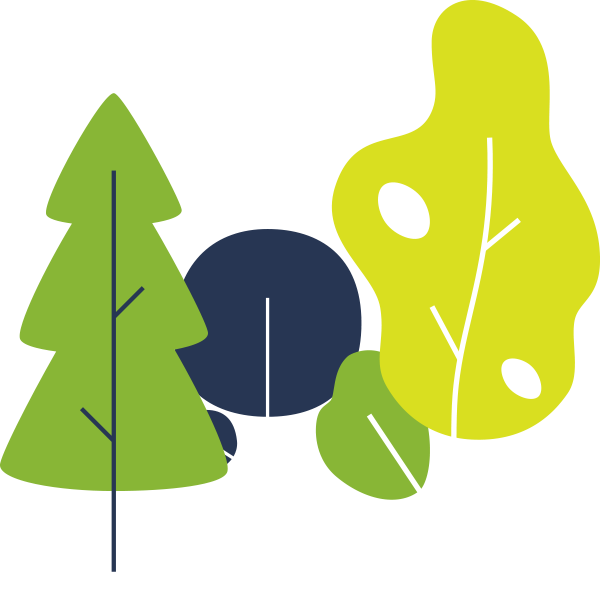
24 Million / 24 Million+

24 million trees are in the ground!

Original Goal Met


Arkansas, Louisiana, Mississippi, United States
Mississippi River Valley
1,000,000 trees
The Mississippi Delta was once a 24-million-acre forested wetland. Today only 4.4 million forested acres remain, mostly in small patches, leading to water quality and habitat issues. Tree planting efforts will improve critical habitat for threatened and endangered species and protect the water quality of the rivers and streams within the delta.

complete
British Columbia, Canada
150,000 trees
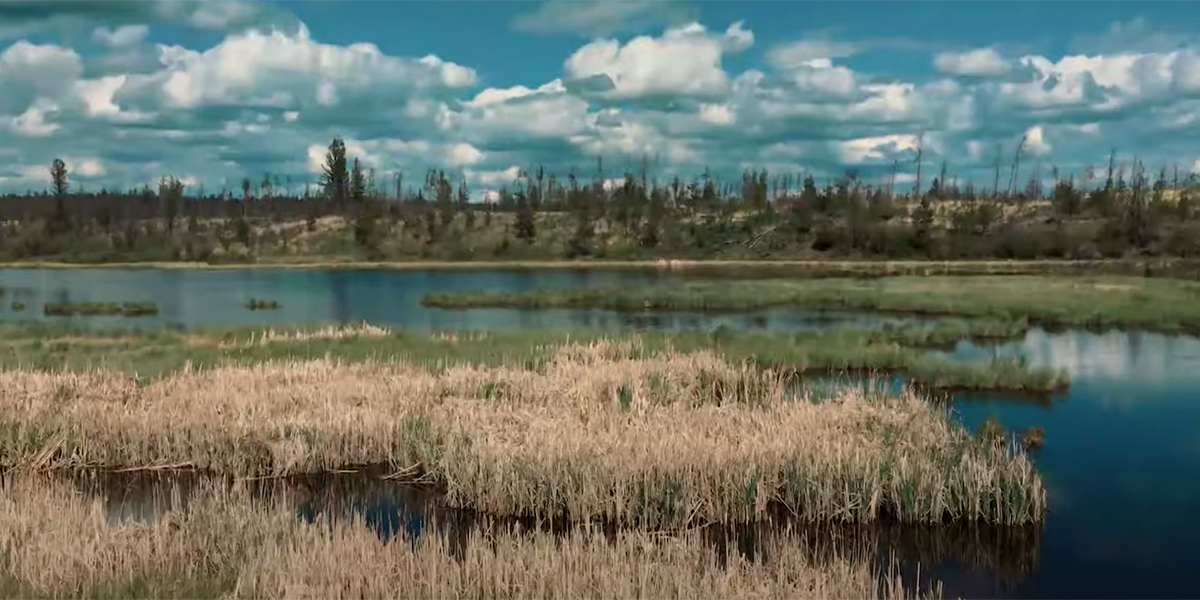

In 2017, the Hanceville Fire raged through British Columbia, burning 240,000 hectares of land. Because of the extreme heat, portions of burned forestland cannot regenerate naturally and must be replanted. Replanting will ensure that area residents will continue to enjoy all the benefits of the forest, including clean air and water.

complete
British Columbia, Canada
170,000 trees
The Elephant Hill fire of 2017 consumed 1,920 square kilometers of land, leaving it charred and unable to naturally regenerate. This level of destruction took a huge toll on not only the forests but also the surrounding ecosystems. Replanting efforts will help to restore the natural state of the land, improve wildlife habitat, sequester carbon, and protect local waterways.

complete
California, United States
California Wildfire Restoration
100,000 trees


This reforestation effort aims to help residents recover from the many wildfires that have burned through California, including the Carr and Camp Fires. The 2018 wildfire season saw an estimated 8,000 fires burning through more than 1.8 million acres of forestland between July and December. Replanting will ensure that communities around the state won’t face increasing challenges such as mudslides and degraded soil, water, and air quality.

complete
Dominican Republic
200,000 trees
We are teaming up with planting partner Taking Root to supply trees to smallholder farmers across the Dominican Republic through a project called Trees with Purpose. This work will support local efforts to transform historically degraded land into diverse, multistory agroforestry pots. Farmers learn more about agroforestry and how to put it into action on their land — ensuring a future that includes a healthy ecosystem, a wider diversity of crops, and a higher income.

complete
Florida, United States
Tyndall Air Force Base
983,000 trees
In October of 2018, Hurricane Michael passed directly over Tyndall Air Force Base near Panama City, Florida. The Category 5 hurricane caused major wind and water damage including 12,000 acres of mature slash pine trees snapped in half. While funding was available for the cleanup effort following the severe storm damage, support is needed to replace the trees and ensure a healthy, forested future for this ground.

complete
Georgia, United States
Georgia Watersheds
450,000 trees
The health of our waterways often begins with forested watersheds. In Georgia, we are working with The Nature Conservancy and several other local partners to improve tree cover in four areas of the state, protecting waterway health and providing critical habitat for local wildlife.

complete
Haiti
1,050,000 trees
Haiti’s mangrove forests help to stabilize shorelines, improve the quality of the water, and provide a natural habitat for fish and other coastal sea life in addition to supporting coral reef health. Working with Eden Reforestation Projects, we will be helping to restore mangrove trees in coastal marsh systems in southern Haiti.

complete
Michigan, United States
Michigan State Forest Lands
2,607,067 trees
Together with the Michigan Department of Natural Resources, we are working to replant several of Michigan’s state forests on a large scale. These efforts will replant native tree species to return this area to its natural state and improve area watershed health. The pine forests will grow to provide habitat for the endangered Kirtland’s warbler as well as other wildlife.

complete
Montana, United States
Bitterroot National Forest
63,800 trees
Mountain pine beetle outbreaks have severely damaged the forest cover in the Ambrose Saddle area of Bitterroot National Forest over the years. Reforestation in this area with a mix of tree species will promote insect and disease resiliency, restore habitat for wildlife, reduce soil erosion, and return this area to its original forested state.

complete
Montana, United States
Custer Gallatin National Forest
275,000 trees
Large wildfires have plagued this forest since 2000, and much of the forest cover is struggling to regenerate on its own due to the intensity of the fires. Tree planting efforts will speed up the recovery of the forest habitat for area wildlife as well as improve area watershed health.

complete
Montana, United States
Flathead & Kootenai National Forests
295,132 trees
Wildfires, bark beetles, and root disease have created widespread tree mortality in Montana’s Kootenai and Flathead National Forests. This project is replanting the area with trees species that are resistant to all three of those issues. In doing so, it will restore critical wildlife habitat and ensure the forests are more resilient for the years ahead.

complete
Nebraska, United States
Nebraska National Forest
40,000 trees
The rugged landscape of the Nebraska National Forest’s Pine Ridge District is a treat amid the central plains. Catastrophic wildfires, however, blazed through this National Forest in 2006 and again in 2012, wiping out much of the area’s Ponderosa Pine stands. Aggressive reforestation is needed to reestablish this tree species in the high-intensity burn areas that are incapable of natural regeneration.

complete
Nicaragua
975,000 trees
To help support small-scale farming families in Nicaragua, the Arbor Day Foundation is working with Taking Root through its CommuniTrees program. Together, we’re helping to build financial security and sustainable livelihoods — along with a stronger tree canopy — by reforesting previously underused land.

complete
North Carolina, United States
Bladen Lakes State Forest
147,555 trees
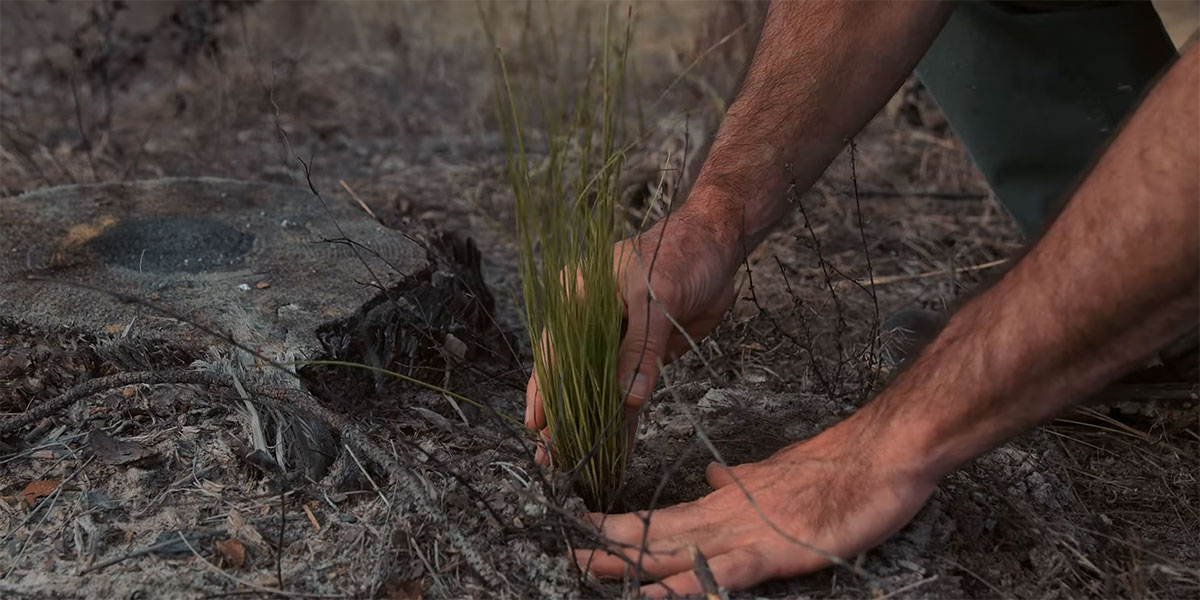

In September of 2018, North Carolina was hit by Hurricane Florence. With it came flooding of the Cape Fear River that destroyed young forest trees in Bladen Lakes State Forest. This project will replant forest areas affected by flooding, restore critical habitat for area wildlife, and ensure that new forest plantings can withstand potential future flooding events.

complete
Oregon, United States
Rogue River-Siskiyou National Forest
23,100 trees
In 2017, the Chetco Bar Fire burned more than 170,000 acres of the Rogue River-Siskiyou National Forest, leaving in its wake limited opportunity for successful natural regeneration. This replanting work is critical to ensure a resilient tree line and habitat for wildlife.

complete
Oregon, United States
Willamette River Basin
500,000 trees
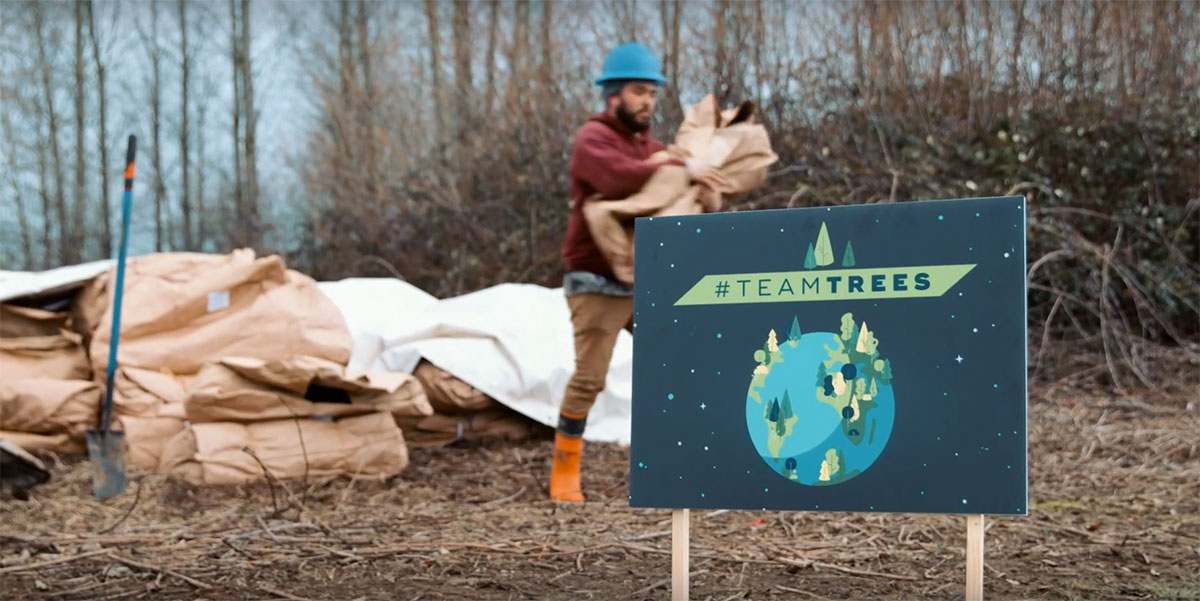

The iconic Willamette River is 187 miles in length, drains a 11,478-square-mile area (12% of Oregon’s landscape), and serves as a major tributary of the Columbia River. Tree planting efforts here will protect the watershed area of a basin that is home to two-thirds of Oregon’s population and generates 75% of its economic output. This project will reestablish forests to ensure clean drinking water for residents as well as improve water quality and habitat for wildlife dependent upon this area.

complete
South Carolina, United States
1,350,000 trees
The longleaf pine ecosystem supports a wide variety of plant and animal species, many relying solely on this type of habitat. But over time, longleaf pine forests have dwindled. Replanting work is underway in South Carolina to restore longleaf pine stands and support rare wildlife including the gopher tortoise and red-cockaded woodpecker.

complete
Southeastern United States
Alabama, Florida, Georgia, and South Carolina
1,000,000 trees
Longleaf pine forests have been disappearing at an alarming rate throughout the southeastern portion of the U.S., leading to a decline in the quality of area watersheds and wildlife habitat. Work is underway with the National Fish and Wildlife Foundation to reestablish these trees on both public and private land.

complete
Virginia, United States
Rappahannock River Watershed
50,000 trees
The Rappahannock River watershed encompasses 2,700 square miles. Within this area, thousands of miles of streams are without riparian buffers and suffer from high levels of nitrogen and phosphorus. The watershed faces additional challenges due to urban development. Trees must be planted to prevent erosion, provide wildlife habitat, and reduce pollution levels in waterways.

complete
Washington, United States
Washington State Lands
650,000 trees
We are working with the Washington Department of Natural Resources to improve overall forest health throughout the State of Washington. Replanting efforts are focused on providing forest resiliency for areas affected by disease and insect damage, restoring riparian zones, improving habitat for the threatened northern spotted owl, and ensuring healthy and diverse mixed-species tree stands.

2024

new project
Guatemala
Mazatenango Coastal Restoration Project
25,000 trees
Guatemala's southern coast has experienced degradation for decades due to unsustainable agricultural practices leading to the desertification of the region. Partnering with Restoration Era, this project aims to combat pollution and erosion and help the local community by employing them to plant native mangroves and coastal forest trees, as well as support nearby agroforestry initiatives. This area is a bird sanctuary and is listed as a biodiversity hotspot by Conservation International. Restoring the mangrove estuary habitat will benefit not only the people, but also the fish, shellfish, and birds that rely on it.

complete
Burundi
100,000 trees
Burundi is one the poorest and most deforested countries in the world — with a vicious cycle of ever-increasing poverty, deforestation, and land degradation. In addition to establishing tree nurseries and planting trees, this project works to break the cycle through education. Farmers can learn about sustainable farming and the benefits of trees for their families and their communities.

complete
The Great Green Wall
Senegal, Mali, Chad
3,840,000 trees
The Great Green Wall is a new swath of trees being planted across the African Sahel, one of the poorest regions in the world. It aims to restore 100 million hectares of degraded land and combat the area’s increased desertification, drought, and food insecurity. Once complete, it will improve the lives of millions of Africans for generations to come.

complete
Kenya
950,000 trees


Kenya’s Kijabe Forest has historically been one of Kenya’s five nationally important water towers, which provide an estimated 75 percent of the country’s water resources. Over the past 15 years, however, the forest has been cleared for charcoal and timber, creating dramatic and damaging impacts for wildlife, infrastructure, and quality of life. The goal of planting 1.5 million trees will help reestablish a sustainable water supply through protecting and replanting around springs and rivers. These trees will also restore, habitat for wildlife, stabilize steep slopes prone to landslides, and secure livelihoods.

2024

new project
Kenya
Kenya Mangrove Reforestation Project
25,000 trees
Due to urbanization and a lack of effective governance, the mangroves of coastal Kenya have been overexploited and overharvested. Local communities depend on these mangrove ecosystems for employment, livelihood, and nutrition. Partnering with Veritree, this project will help restore the mangrove forests with the goal of empowering the impoverished coastal community to break the poverty cycle. The restored forests will help defend against storm surges and support local biodiversity.

complete
Madagascar
Mangroves
600,000 trees
In the coastal zones of Madagascar, mangroves are critical. With increasing mangrove deforestation, these areas are facing destabilized coastline and an increased vulnerability to storms and severe weather events. We are working to strategically restore mangroves along the coast of Madagascar to help preserve this unique ecosystem.

complete
Madagascar
Kianjavato Mountain Range
400,000 trees
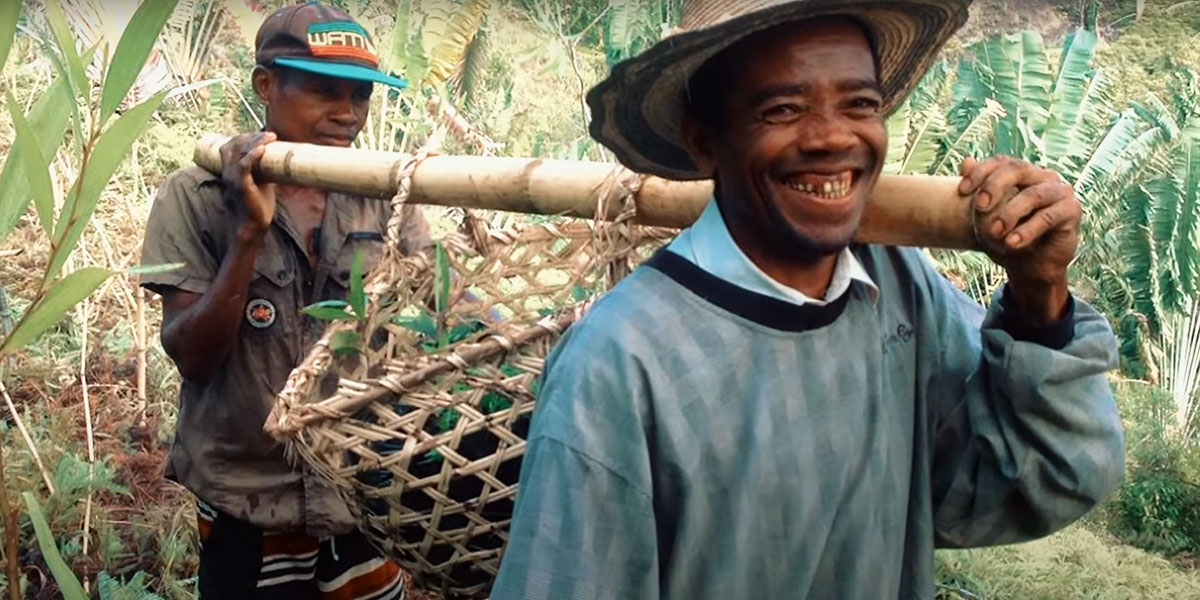

Our partnership with Omaha’s Henry Doorly Zoo and Aquarium and the Madagascar Biodiversity Partnership is focused on reversing the destruction of forest habitat that is home to critically endangered lemurs and other wildlife species found nowhere else on Earth. Tree planting efforts are underway to rebuild the lush landscape. Locals are becoming actively involved in reestablishing the rain forest canopy there, creating habitat for lemurs and a better way of life for the people of Madagascar.

complete
Mozambique
Eden Reforestation
1,252,007 trees


In response to the large-scale loss of mangroves in Mozambique, we are working with partners to provide support for local communities to plant and manage mangrove forests.This offers long - term employment and livelihood improvements – particularly the empowerment of women – while helping to protect coastal communities from environmental disasters, improving fisheries, and removing carbon from the atmosphere.

complete
Sierra Leone
Freetown Peninsula
80,000 trees
Now facing the alarming effects of deforestation, including catastrophic mudslides, officials in this area are working to provide the benefits of trees to urban and suburban areas. Efforts through this project are focused on providing residents with the opportunity to plant and care for a tree within their community to build greater environmental resiliency.

complete
China
25,000 trees
China is one of the most affected countries in the world by desertification. In Minquin County alone, the desertification area accounts for nearly 95% of the total land area. As the young workforce leaves for an urban life, local residents face the reality of becoming ecological refugees. By planting indigenous trees, stabilizing sand dunes, training local community members and creating job opportunities, the fate of Minquin County can be improved significantly.

complete
China
Liaoning Province
45,000 trees
Tree planting efforts are underway near the city of Gaizhou, China. The area currently has some forest cover, but it is in poor condition, which has led to soil depletion and erosion. New trees are needed to reverse those conditions, restore habitat for wildlife, and bring back a beautiful outdoor space for the people of Gaizhou to enjoy. This evolution in the ecosystem will also contribute to promoting social stability and sustainable economic development.

complete
India
905,439 trees
Southern India’s Cauvery River Basin is in crisis. The river has shrunk by an estimated 40% from its historical flows over 70 years. This is resulting in drinking water scarcity. A loss of tree cover has also contributed to poor soil health. Reforesting this river basin and educating farmers about agroforestry practices will help to stabilize the river and improve soil conditions over time.

complete
Indonesia
450,000 trees
West Papua, Indonesia, situated in the Coral Triangle, is an area recognized as the global center of marine biodiversity and a global priority for conservation. Biak Island is one of the poorest areas of Indonesia where subsistence farmers and fishers make up approximately 75% of the population. This project will focus on restoring mangroves and tropical forests in this area and to promote food security by helping local people plant agroforestry trees.

new project
Laos
Xe Sap and Xe Pian National Protected Areas
30,000 trees
With ecosystems not common in Laos, both Xe Sap and Xe Pian National Protected Areas are intrinsically significant. This forest region provides habitat for a wide variety of plant and animal species, many found nowhere else on Earth. Reforestation efforts are focused on enhancing existing tree canopy while also improving degraded areas and supporting agroforestry efforts. This work will foster biodiversity, create economic opportunities for local residents, and improve overall resilience to climate change.

complete
Nepal
885,000 trees
Chitwan National Park hosts more than 700 species of wildlife including leopards and the elusive Bengal tiger. Replanting efforts here are focused on improving livelihoods for those who call Nepal home and restoring forests in areas of critical importance. The planting sites are located in upland areas of the mountainous Nawalparasi District, along lowland alluvial plains, and around Chitwan National Park as a means of developing a buffer zone around this national treasure.

complete
Thailand
Mae Hong Son Province
50,000 trees
Unsustainable logging practices and changes in land use have left Thailand with a significant loss of rain forest canopy. Replanting is underway, with a goal of restoring forestlands while improving the quality of life for local residents. The newly planted trees will also grow to serve as habitat for endangered species such as tortoises and Asian elephants.

complete
Türkiye
Adana Province
60,000 trees
A massive wildfire swept across southern Türkiye in August of 2020, leaving its landscape unable to naturally regenerate. These new trees will restore the area’s beauty and bring back much-needed environmental benefits for Turkish villagers. They will also create long-term jobs, primarily for local women, who will help plant and maintain them long-term.

complete
Türkiye
İzmir Province
50,000 trees
After generations of deforestation and land use change, this region of Türkiye is facing a real need for forest restoration. Red pines are being planted in an effort to return the land to its natural state — ensuring cleaner air, cleaner water, carbon storage, better flood prevention, and habitat for area wildlife.

complete
Türkiye
Manisa Province
3,500 trees
This afforestation project is located on minelands within the Manisa, Aegean Region of western Türkiye, where mining operations have caused significant deterioration to soil cover, ground and drinking water resources, wildlife habitats, and regional air quality. This tree planting project aims to reduce the destructive effects of mining activity on the natural environment and improve the quality of life for residents in the area. Additionally, the new trees will also help improve the quality of river and surface water collected in the Kül Dam as well as groundwater within and surrounding the planting site.

complete
Central and Northern Victoria
75,000 trees
Over the years, this area has faced a tremendous amount of deforestation due to various industries and rapid population growth. The result is very fragmented forestland that is struggling to support area wildlife. Replanting efforts will create forested corridors to connect three area National Parks — providing better habitat for animal species and a healthier ecosystem overall.

complete
East Queensland
200,000 trees
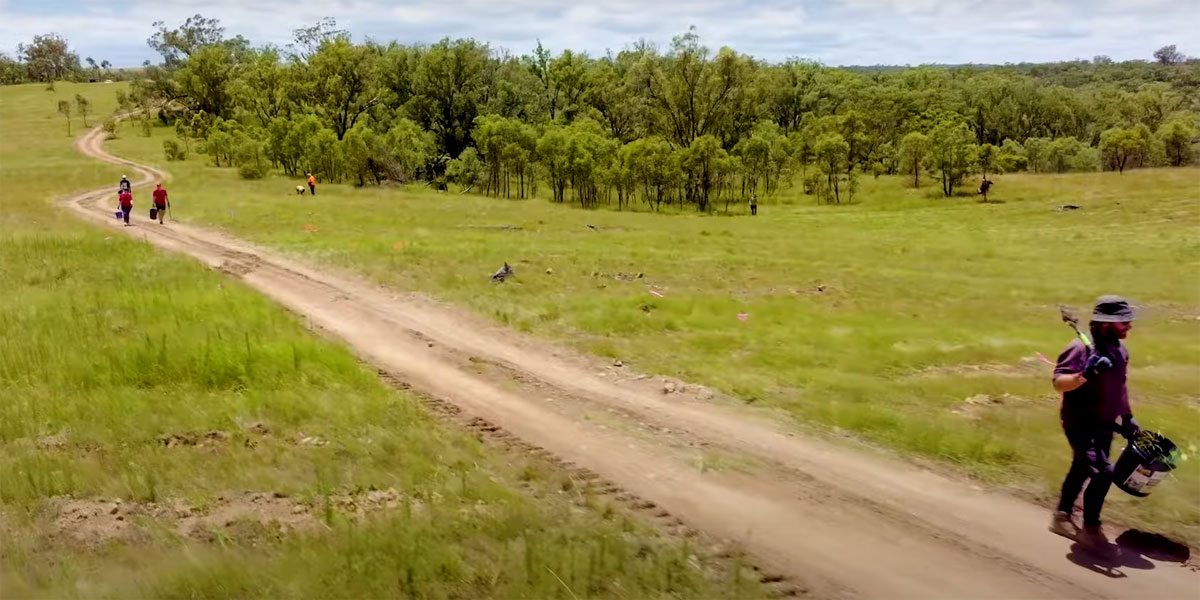

Many forested areas in Queensland, Australia have been cleared for surface mining and agricultural use. Our ongoing replanting efforts will help protect the area’s rare wildlife populations, including turtle species, wallabies, kangaroos, wombats, and koalas, as well as water leading to the Great Barrier Reef.

complete
Auckland Council
41,789 trees
Auckland, New Zealand has a goal to reach 30% tree canopy by 2050. As part of this goal, new trees are being planted across four different regional sites — Totara Park, Puhinui Reserve, Hoskin Reserve, and Hunua Domain — in 2022. These trees will create new, thriving forests for New Zealanders to enjoy. And they will provide countless benefits — including cleaner water, cleaner air, greater biodiversity, and carbon sequestration.

complete
Te Uru Rakau
32,590 trees
Project Mahitahi is a collaborative effort aimed at restoring the terrestrial ecosystem of New Zealand’s Mahitahi/Maitahi/Maitai valley. The area has great cultural importance, as well as supports threatened species like the Nelson green gecko and Kakariki parrot. The new trees planted through this project will support wildlife, sequester carbon, improve water quality for the local community, and create dozens of jobs.

complete
France
150,000 trees
While France currently has the fourth-largest forested area in Europe, the rate of reforestation has dramatically slowed since the 1990s. In order to meet the challenges of climate change, natural disasters, and disease, reforestation is imperative. Working with partner ReforestAction, we will help to ensure a resilient tree cover that provides a full range of ecological benefits.

complete
Ireland
100,000 trees
Working with the group Trees on the Land, we are helping to establish tree cover and woodlands in both rural and urban areas of the Republic of Ireland. These newly planted forests will grow and provide valuable resources, ecosystem benefits, and a lasting legacy for future generations.

complete
Portugal
10,000 trees
Partnering with Gone West Global, the Arbor Day Foundation is planting trees across Portugal through the ‘Free Trees for Portugal’ initiative. This project aims to restore more than 30 sites affected by fire, deforestation, and invasive species back to their natural beauty. Areas benefiting from the work include Alentejo, Central Portugal, Lisbon, and Algarve.

complete
Spain
Palencia
10,000 trees
Spanning 18.4 million hectares, the Spanish forest is the third largest forest area in Europe. Invaluable in every way, it is highly beneficial to its environment: preserving local biodiversity, filtering water, preventing soil erosion, and more. However, diseases, fires, and storms have taken a toll on Spanish forestland. Support is needed so replanting efforts can continue.

complete
United Kingdom
Woodland Sites
50,000 trees
Partnering with the Woodland Trust, the Arbor Day Foundation is working to support private landowners interested in planting trees on barren sites in need of tree cover. The goal is to engage local landowners in the benefits of tree planting and agroforestry and create new woodland in one of the least-forested regions in Europe.

complete
United Kingdom
Urban Sites
24,000 trees
Cities throughout the United Kingdom are looking for ways to expand their urban tree canopy. Planting efforts will focus on areas with the greatest need for trees, and local residents will be included in the tree plantings where possible. These new trees will help to not only green the cities in which they are planted but also improve the lives of those who live there.

complete
United Kingdom
Mersey Forest
270,000 trees
The Mersey Forest is one of England's 12 Community Forests, which together form the country’s largest environmental regeneration initiative. Tree planting efforts here will help fight climate change, clean the region’s air and water, and ultimately create healthier communities.

complete
Argentina, Bolivia, Chile, Ecuador, Peru
Andes Mountains
300,000 trees
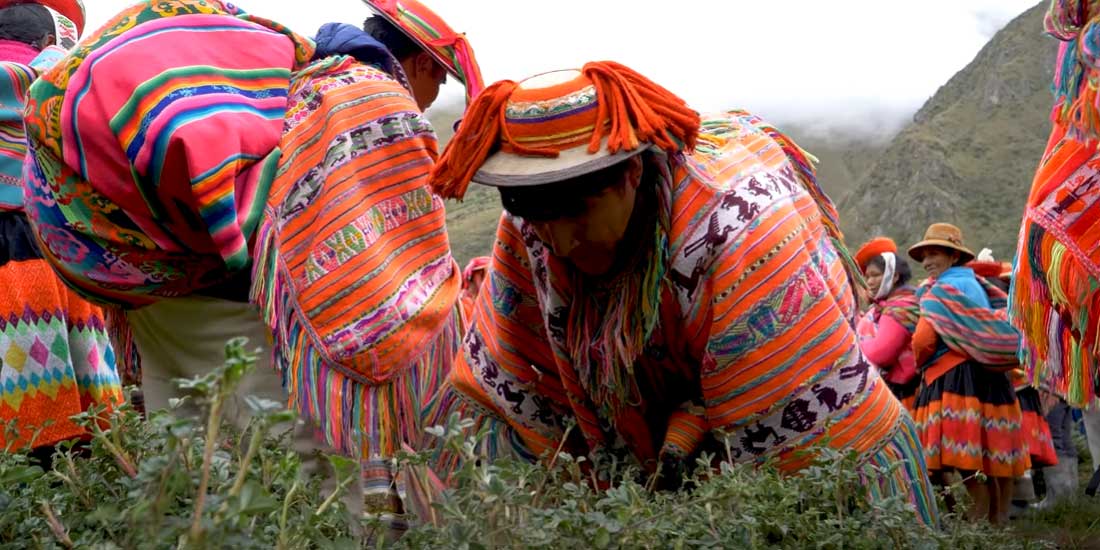

A large-scale restoration initiative — known as Acción Andina — is focused on replanting an overlooked, yet critically important ecosystem within the world’s longest continental mountain range. Native trees will be planted to ensure long-term climate resilience and water security for those who call this region home.

complete
Brazil
Amazon Rain Forest
600,000 trees
In the face of deforestation and devastation, the Arbor Day Foundation is dedicated to helping restore indigenous lands in the Brazilian Amazon. Our work with local partner Forest Trends will provide food security and income alternatives for thousands of indigenous people while contributing to conservation efforts and helping mitigate climate change.

complete
Brazil
Atlantic Forest
170,000 trees
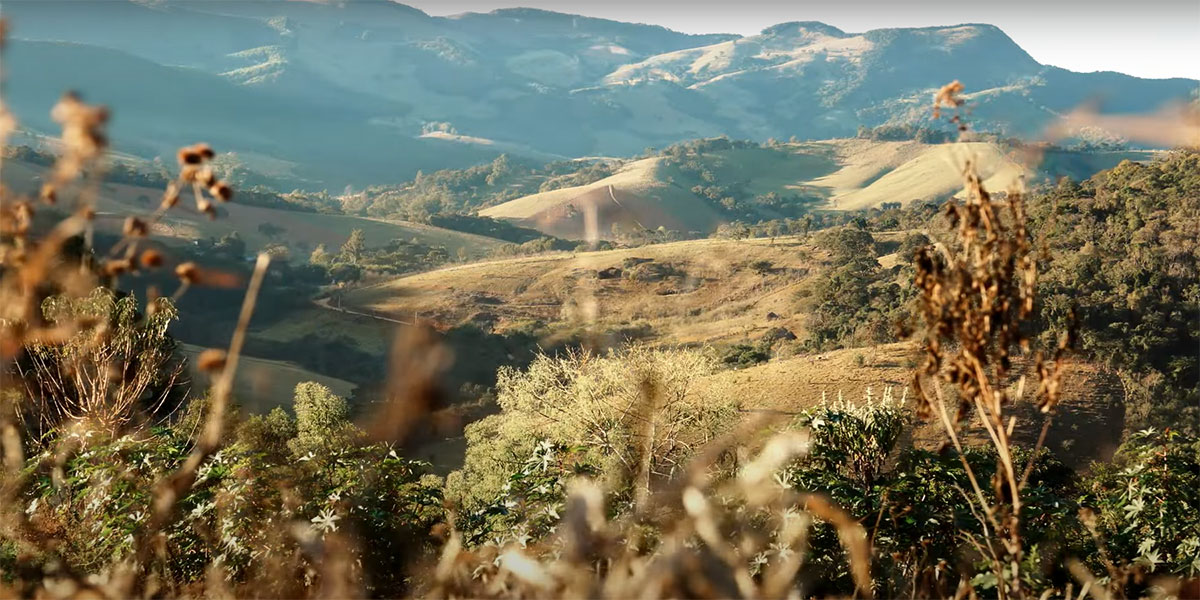

The country’s Atlantic Forest has faced centuries of degradation due to agriculture, illegal logging, and development. This tropical jungle has lost nearly 90% of its original footprint. Restoration of this tropical landscape will mean clean water for more than 100 million South Americans.

complete
Peru
235,800 trees
Peru’s rain forest lands have faced large-scale deforestation due to inefficient agricultural practices. Tree planting efforts here will help to restore deforested land and create opportunities for shade-grown crops such as coffee and cocoa. Through this approach, the rain forest can remain intact and local farmers gain a sustainable source of income.

2024

new project
Colombia
1,667 trees
Partnering with Terraformation and their local implementing partners, this pilot project seeks to scale planting operations and establish a long-term management plan for the larger Sembrando Futuro (Planting the Future) project. Located in the Suroeste Antioqueño (Southwest Antioquia) region and the Tropical Andes biodiversity hotspot in Colombia, this project aims to restore montane forest cover and connectivity between forests, leading to more wildlife habitat, increased biodiversity over time, and benefits for the local community including employment opportunities and improved access to safe drinking water.

#TeamTrees Social